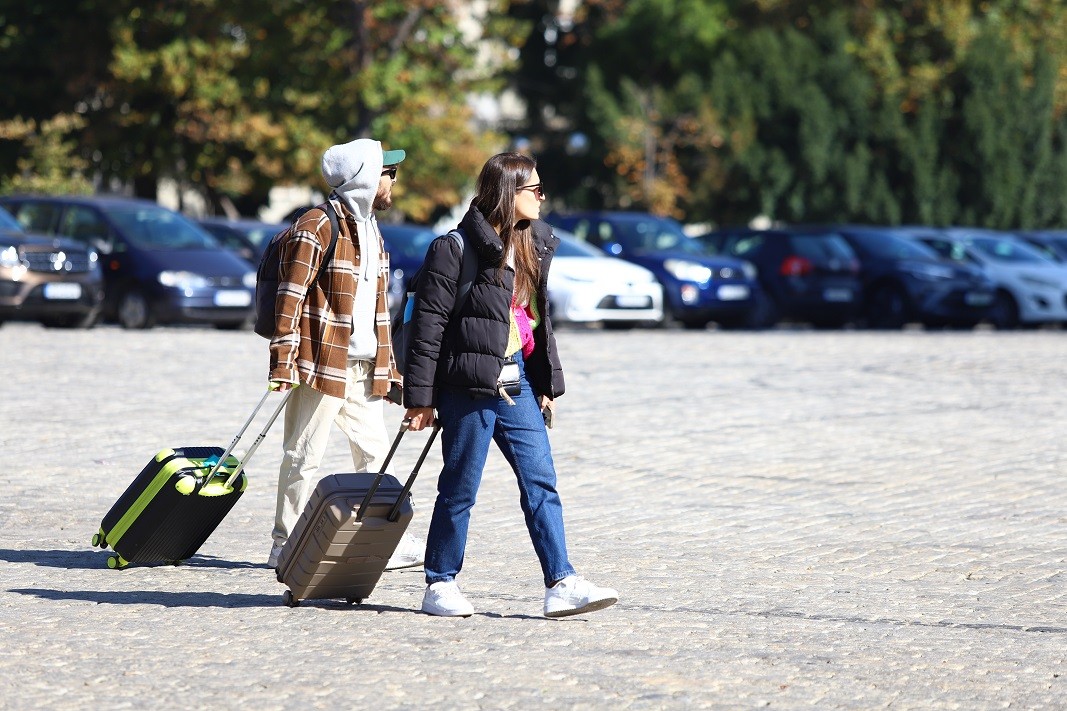Before and after the pandemic – this is watershed by which we continue to determine whether the tourism year was a success or not. The year before Covid-19, 2019, is considered one of the most productive in the tourist industry But what happened in the current 2022 and did the lifting of restrictive pandemic measures unleash the desired tourist flow to and from Bulgaria? And more - how did the Russian aggression in the region, the energy crisis and the raging inflation affect tourist travel?
Chaotic and unpredictable - this is how the industry defines the year 2022, as an effect of stress, increased costs and low profits. "But we have largely returned to the best years, before the pandemic," says Rumen Draganov from the Institute for Tourism Analysis and Evaluation. According to him, Bulgarian tourism is currently moving about 15 percent lower than the levels of the "coveted" 2019, which is a good result. The full recovery of the tourist sector is expected to happen by 2024.
What was 2022 in terms of tourism?
“In general, there has not been an easy year in Bulgarian tourism in its entire history”, says Rumen Draganov. “We have had very difficult years, both during the Chernobyl period and during the revolutions that happened with the burning of our parliament in the 1990s, with the subsequent financial crises in 1998 and later, etc. So we are in yet another situation where we are overcoming a crisis or working in conditions of uncertainty. But what we saw is that in 2022, we created satisfied tourists not only with the conditions, but also with the quality of service, which was at a very high level. During the years of the pandemic, businesses that could not cope with the complex situation dropped out of the market. Those who relied on their own strengths and not the state to move forward and create a quality product survived. Some of them even exceeded the volumes they had in 2019.”

The war did not significantly affect the industry in the challenging year of 2022, the traditional markets from the EU are successfully recovering, interest in cultural and historical routes in an urban environment is growing, the industry reports. In October and November, there was a large increase in European tourists for cultural, educational and weekend tourism.
It was a challenging year, but Bulgaria did well. Konstantin Zankov, consultant and tourist entrepreneur, shares this opinion. According to him, the war in the region still had an impact on planned trips, but it was mainly about tourists from distant markets, such as Asia for example:
"Because imagine when a Japanese or Chinese looks at Bulgaria on the world map and sees where Ukraine is, for them the distance is only a few centimeters and that worries them. Therefore, there is still a decline in these journeys in our part of Europe. On the other hand, conventional tourism, such as spa, seaside and all recreational forms of tourism in Bulgaria developed very well this year! But there is still much to be desired at the level of marketing Bulgaria as a destination. In my opinion, we should put more emphasis on digital channels for advertising our country. Because it is good to know specifically whom we "target" with our product. It is important to have online presence in order to have tourism in all four seasons," Konstantin Zankov says in conclusion.
The awards in the "Hut of the Year" competition, a joint initiative of 360Mag magazine and the Bulgarian Tourist Union, were presented at a ceremony in the Cinema House in Sofia. More than 100 mountain lodges and shelters from all..
The rock formations overhanging the Rusenski Lom River and its tributaries Beli Lom, Cherni Lom and Mali Lom are a magnet for nature lovers and adrenaline seekers. The whole area is known as Polomie or "Mountain under the Plain"...
Caretaker Minister of Tourism Evtim Miloshev opened the 19 th International Exposition “Cultural Tourism” in Veliko Tarnovo, with the participation of 10 countries as well as 30 Bulgarian municipalities. In his address, Minister Miloshev..

+359 2 9336 661
